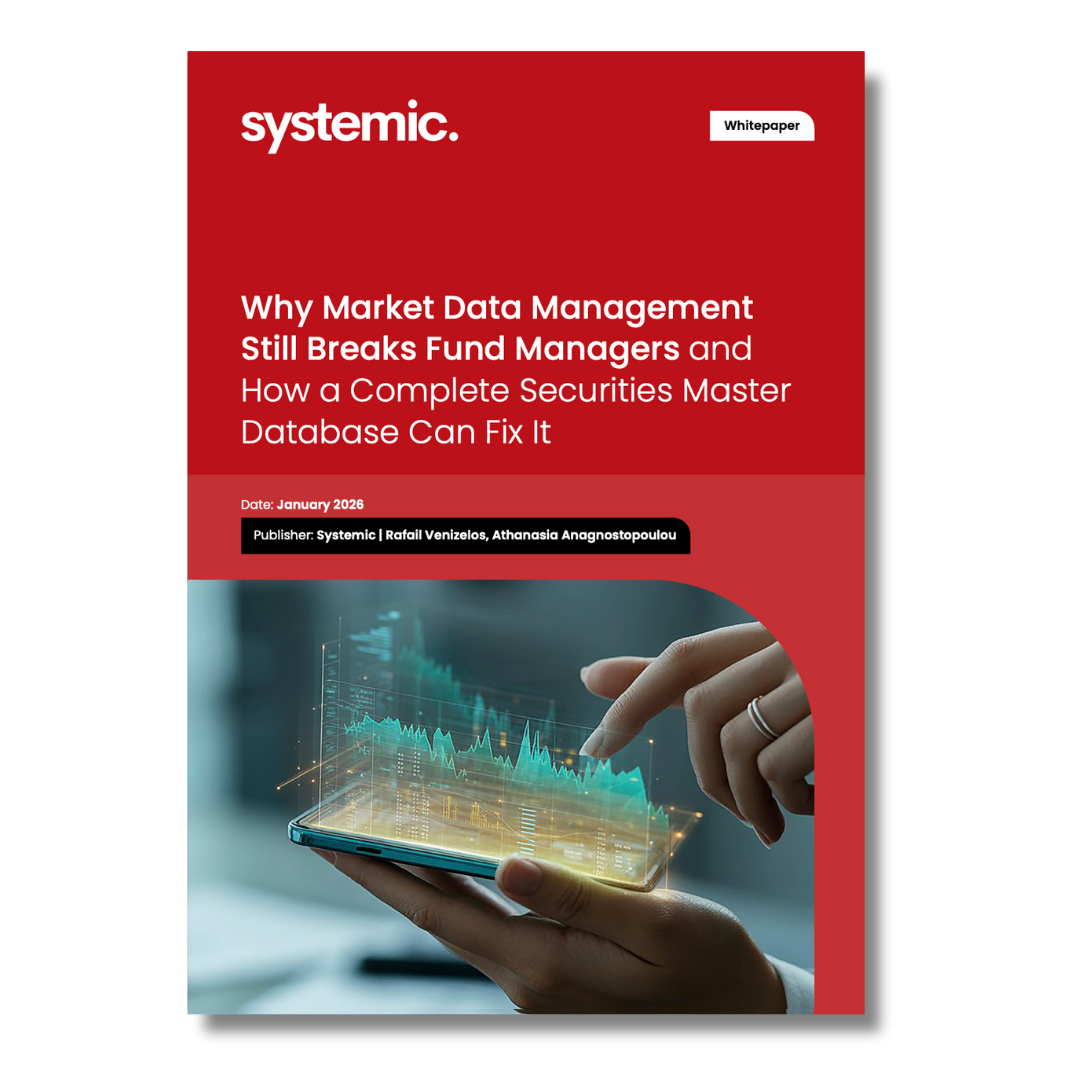The future of fund management will be less about gut feelings and more about crunching numbers—fast, accurate, and actionable. In that spirit, BCG adds emphasis to the requirement of data-driven strategies for deeper market insight with the view of proactively driving decisions.
With the right analytics tools at our disposal, we’re looking at a world where data isn’t just part of the equation; it is the equation. Let’s dive into three key ways analytics is changing fund management, and how fund managers can stay ahead of the curve.
1. AI’s Transformative Impact on Fund Management Operations
AI has already made significant strides in the front office, where it’s used to manage funds and interrogate large datasets to forecast market events and develop investment strategies.
It also generates hyper-personalized investment strategies; for each client, it analyzes their risk profile, financial goals, and even behavioral tendencies in tailoring portfolios to fit them. Accenture’s survey, for example, found that 80% of asset managers believe that “customization for the masses” is going to be an important investment approach in the coming years because, as alpha becomes more difficult to attain, personalized products are emerging as an appealing alternative to low-cost beta investing. Analysis of client data, for instance, may show that a certain client is extremely risk-averse when markets decline but is more willing to take on risk during bull markets.
Such knowledge helps a fund manager to derive a strategy that dynamically adjusts the asset allocation depending on market conditions and the client’s preferences.
This level of personalization not only provides superior client results but also reinforces relationships. Investors who believed that their portfolio was a good reflection of their needs were more likely to trust their fund manager and would be retained for the long term.
Adoption of AI is picking up in the middle and back offices, particularly for the larger firms. The functions most impacted include reconciliations, transaction management, risk management, data management, and compliance, by AI.
For instance, leading asset managers are already implementing AI-based risk management systems that can process and analyze complex data faster than ever before, according to a report by Accenture.
Now, with the analysis of huge amounts of structured and unstructured data, predictive models can help in the identification of potential risks even before they come into being. These systems not only enhance accuracy but also empower fund managers to stress-test their portfolios under a variety of scenarios. Now, analytics is empowering us not only to mitigate risk but to actively turn it into an opportunity.
2. Unified Data View for Better Operational Efficiency
The PwC report notes that proper integration of data enables fund managers to aggregate information residing in different sources and systems, hence allowing them to view their portfolio, transactions, and compliance requirements holistically.
- Simplified Regulatory Reporting
The most important single advantage of an all-in-one software system, in the line of Systemic’s RiskValue, is that it brings efficiency to regulatory reporting. With a multitude of regulations that demand detailed and accurate reports, fund managers have their hands full. Traditionally, this would mean gathering data from many different places, a task that was time-consuming and prone to error.
This all-in-one solution neatly integrates data from divergent sources onto one platform, which then automatically generates regulatory reports, assuring accuracy and compliance. The saved time can be further invested in other, more strategic activities to improve overall productivity.
- Effortless Investor Presentations
One more area where integrated software systems excel is in the preparation of presentations for investors. That type of system allows fund managers to easily corral diverse information into an organized and attention-grabbing presentation—be it performance metrics, market analysis, or projections for the future, all are readily at hand and can be easily assembled into a presentation.
This ease of preparation does not only save time but also ensures that presentations are accurate and up-to-date, helping to build trust and confidence with the investors.
- Better Collaboration and Communication
Most all-in-one software systems have built-in collaboration tools, which help to communicate better among team members. Fund managers could share reports, presentations, and any other documents related to the investment process within the platform, keeping everybody on the same page. This should lead to improved workflow efficiency and better team performance.
3. Summarizing complex data to fund investors through a mobile app:
In this dynamic digital era, mobile applications are the must-haves of finance management. While banking and brokerage app adoption has gone massive, fund investors usually don’t have a mobile solution dedicated solely to them. That presents a very big opportunity to improve the investing experience for fund investors. Here’s why a mobile application for fund investors is not a luxury but a necessity:
- Real-Time Access to Information:
Fund investors need to have real-time access to their investment portfolios, market trends, and performance metrics. A mobile app can provide immediate updates, enabling investors to make informed decisions on the go. This becomes very critical in volatile markets when even the slightest delay in making decisions can have a significant effect on returns.
- Enhanced User Experience:
The well-developed mobile app can deliver an experience that is very seamless and intuitive for the user. Features like personalized dashboards, easy navigation, and interactive charts help investors track their investments better and understand their performance. This may raise the level of engagement and satisfaction among investors.
- Personalized Insights and Recommendations:
The app uses data analytics and AI in providing highly personalized insights and recommendations through the investor’s portfolio and market conditions. It will also help investors optimize investment strategies for reaching their financial goals easily.
- Streamlined Communication:
A mobile app can improve communication between fund managers and investors, since features like in-app messaging, notifications, and alerts will keep investors updated on important information, such as fund performance and market news. This will create transparency and trust between investors and fund managers.
- Investment Education:
Since investment in funds is a pretty complex affair, especially for a beginner, the mobile app can provide education through articles, videos, and tutorials on understanding fund investing. This will enable investors to make more informed decisions while investing in the market and thereby improve the outcomes of such investments.
Conclusions
This shift in operations to AI-driven is one of the major changes underway, enabling companies to enhance efficiency, reduce costs, and unlock more value from data. As momentum builds up, so will AI become a cornerstone technology that will reshape how asset managers approach operations at all points of the investment life cycle.
All-in-one software systems are revolutionizing the fund management industry. This eases regulatory reporting, improves data integration, and simplifies investor presentations, enhances collaboration, and provides scalability, hence greatly improving efficiency and productivity. For a fund manager operating in a competitive market, investment in an all-in-one software solution is strategic and promises high returns.
The funds surely need an investor mobile application. A mobile app could improve the investment experience in funds, starting with real-time information sharing and improving user experience, to convenience, security, personalized insights, easing communication, and offering learning resources. With the financial industry fast evolving, mobile technology adoption will be critical to satisfying the needs of the modern investor and maintaining competitiveness in the marketplace.
Fund management’s future is being written today, helped by data and analytics. In the new era of fund management, only those firms able to tap the full potential of data and analytics will not only survive but thrive in the industry. The future is clear: analytics is not a tool; it’s a key to driving returns, managing risk, and staying ahead of the curve.






